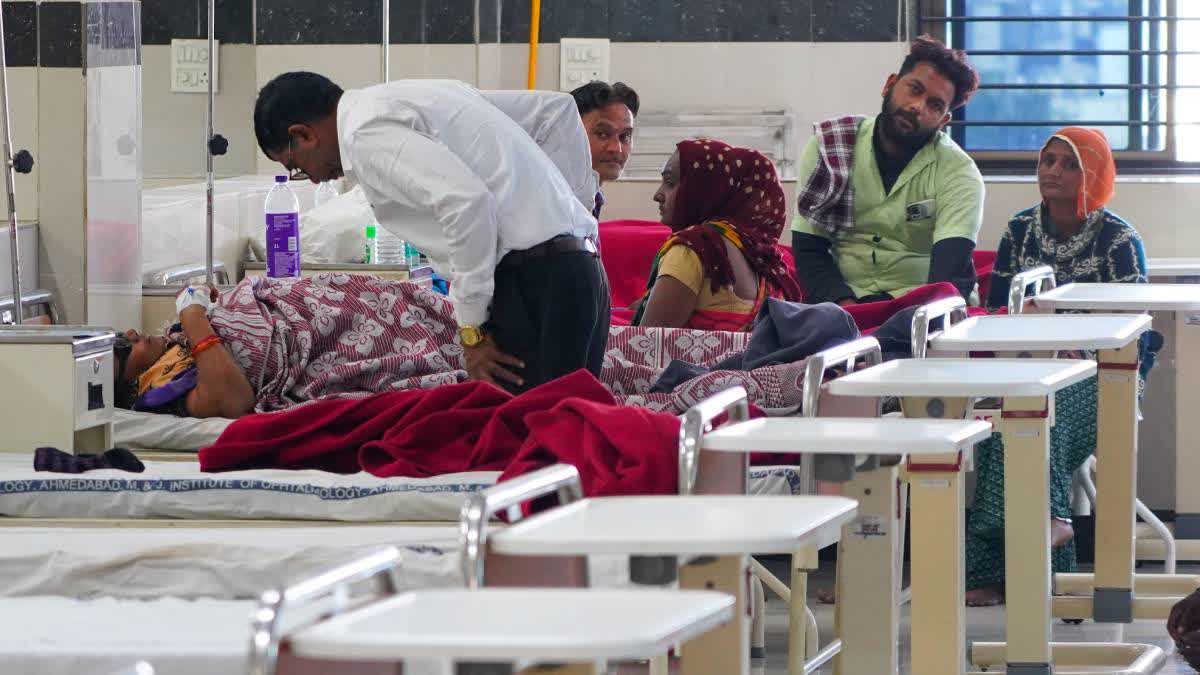New Delhi: Against the backdrop of the central government’s initiative to promote the healthcare ecosystem, a report by the Indian Medical Association (IMA) has found several loopholes that have posed serious hurdles to developing the sector.
The report titled "Issues Faced By Doctors In Government Service" by Dr R Ramesh has identified workload, poor salary and benefits, poor working amenities, lack of continuous training, infrastructure issues, job stress, and safety concerns as major issues posing challenges for the healthcare ecosystem.
The report comes at a time when Prime Minister Narendra Modi has been launching several health care and infrastructure projects in different states. On Wednesday, Modi laid the foundation stone for AIIMS, Darbhanga, a Rs 1,260-crore project that will include a super-speciality hospital, AYUSH block, medical and nursing colleges, and residential facilities, bringing advanced healthcare to Bihar and neighbouring regions.
The report reveals that many government hospitals suffer from inadequate infrastructure. "This includes overcrowded facilities, lack of essential medical equipment, insufficient beds, and poor hygiene standards. Doctors are often forced to work in environments that are not conducive to effective patient care, which adds to the stress and dissatisfaction of their job. Doctors are always at the receiving end in case of complications and issues in patient care attributed to a lack of adequate infrastructure. The treating doctors have little say in the drugs and equipment procured and the quality is compromised which affects the patient care," Dr Ramesh said.
As far as safety issues are concerned, he said in recent years, there have been increasing instances of violence against doctors in government hospitals. "These incidents are often sparked by dissatisfaction with treatment outcomes or delays due to resource limitations. The lack of adequate security measures in many hospitals makes doctors vulnerable to such attacks, further increasing their job-related stress and anxiety," he said.
The report also highlighted the issue of poor working amenities. "The working conditions in many government hospitals are often substandard. Basic facilities like proper resting rooms, duty rooms, clean wards, proper lighting, air conditioning and access to adequate medical supplies and modern equipment are lacking. The lady doctors are adversely affected more. This not only hampers the ability of doctors to provide optimal care but also adds to their frustration," he said.
Highlighting the workloads shouldered by doctors in government hospitals, the report said, "Government hospitals are often overcrowded with an increasing number of patients relying on public healthcare. This leads to a high patient-to-doctor ratio, resulting in a heavy workload for doctors. They are required to work long hours, often without adequate breaks, leading to physical and mental exhaustion".
Dr Ramesh further said the inadequate human resources especially the doctors is the major issue along with the lack of a structured referral system in the three-tier system. The specialist doctors are overburdened at the taluka and district level hospitals due to the stark absence of referral systems where primary and community health centres are to be strengthened and only cases to be seen by specialists are to be referred to secondary and tertiary hospitals.
"Many of the PHCs have been converted to family health centres but the medical officers are not properly trained to work as family physicians," he said.
He also highlighted the issue of job stress. "The condition of long working hours, poor infrastructure and inadequate staffing results in significant stress for doctors in government service. They often face high-pressure situations where they are responsible for handling critical cases without the necessary support. The pressure of politicians and people's representatives, media mostly not tuned to the medical correctness affects the morale and confidence of the doctor. This stress can lead to burnout, affecting their mental and physical health,” Dr Ramesh said, adding that issues faced by government doctors are multifarious and require immediate attention from policymakers.
"Addressing these problems through improved working conditions, better salaries, regular training programmes and enhanced infrastructure and human resources can significantly improve the morale and efficiency of doctors, ensuring better healthcare delivery," he said.
Also Read:



